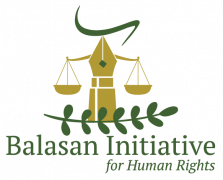Since the outset of its occupation of the West Bank and Gaza, composing the occupied Palestinian territory “oPt” in 1967, Israel has sought to unilaterally control the tourism sector on both sides of the Green Line. Despite the fact that the Paris Agreements signed between the Palestinian Liberation Organization “PLO” and Israel in 1994 regulated the tourism sector between Palestine and Israel on the basis of equal access and equal recognition, Israel imposes its unilateral and exclusive dominance over all aspects pertaining to tourism, and Palestinian actors have no jurisdiction over a vital sector in their own land, which boasts a very rich history and hosts the world’s most sacred religious sites.
A crucial element in ensuring Israel’s control over tourism in Palestine is controlling the narrative that is presented through Palestinian tour guides, which Israel exercises by blocking their access and imposing arbitrary license controls.
Contrary to international law, including international human rights law, as well as the Paris Agreement, Israel bars Palestinian tour guides from accessing any sites inside the Green Line, aside from a select number of individuals who were approved at the time of signing the Paris Protocols, and limited licenses are granted to Palestinians from occupied East Jerusalem. While 15,000 Israeli tour guides have full access to Palestinian land and sites, only 50 Palestinian guides have reciprocal access to sites located inside the Green Line. By contrast, Israeli tour guides operate in Palestine effectively without any restrictions.
With the growing Christian religious tourism and pilgrimages, Palestinian tour guides are still denied their basic rights despite being duly licensed by the Palestinian authorities, and highly professional individuals. As a result, Palestinian tour guides, mostly Christians, formed a Committee to challenge such blatant discrimination and demand equal access to sites on both sides of the Green Line, as stipulated in the Paris Protocols. The Committee seeks to obtain 37 new licences for Palestinian tour guides, to increase the number of licensed tour guides who can access sites inside the Green Line from 50 to 87, which remains a very low number compared to the number of Israeli tour guides who enjoy full access on both sides of the Green Line.
The Committee first appealed to the Israeli Ministry of Tourism to raise the number of Palestinian tour guides to 87. Multiple requests for permits were filed to the Israeli Ministry of Tourism, and were subsequently denied, citing different pretexts, including “political decisions”, and suspension of tourism due to the Pandemic Covid-19. Upon the termination of Covid-19 suspension of tourism, the Committee sent additional requests to the Israeli Ministry of Tourism, which were all rejected. As a result, the Committee decided to appeal against this plain discrimination in Israeli courts. The Israeli Ministry of Tourism responded that individuals are not entitled to rights under a “political agreement”, and tried to exert pressure on the court to deny its jurisdiction over the case. The case is still ongoing before Israel’s supreme court.
Such measures deliberately disadvantage Palestinian tour guides, who suffer from restrictions on movement and licensing, self-censorship as they must master the official Israeli history and narratives, and are prohibited from sharing any Palestinian narratives, and their inability to compete with the Israeli tour companies who enjoy full access. In such context, and since 2000, the number of Palestinian tour guides has decreased due to Israel’s restrictions on their ability to work at full capacity, and its unilateral and deliberate rejection of the Paris Protocol’s requirements.
With the arbitrary set of policies that dictate the conditions of the tourism sector in general in Palestine, including tourist guides, it is evident that Israeli religious tourism relies on the military and economic oppression of Palestinians, resulting in a situation of complete Israeli monopoly where Palestinian land, resources and livelihoods are oppressed and exploited for the benefit of entrenching Israeli occupation and annexation. It is thus imperative for various stakeholders involved in the tourism industry to take action to mitigate the damage resulting from tourism policies on Palestine, its land and people, and to achieve responsible, ethical pilgrimage and tourism. This includes States, Churches and Church-affiliated groups, individual pilgrims and tourists and businesses. Read more about the recommendations here.
